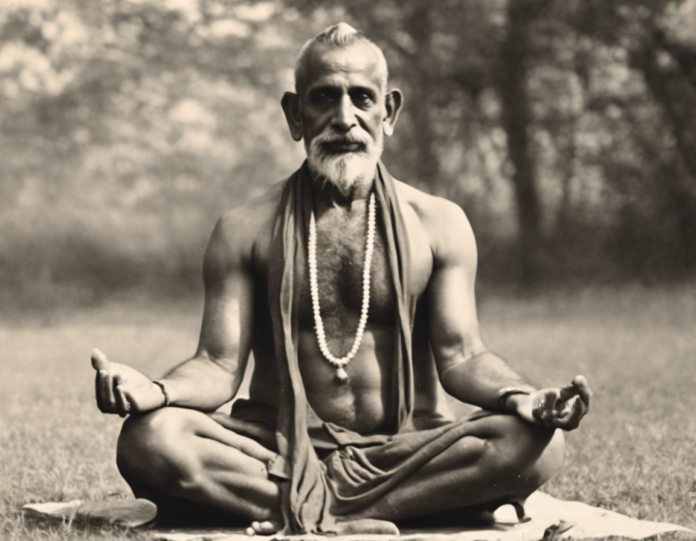Autobiography of a Yogi by Paramahansa Yogananda is a spiritual classic that has touched the hearts and minds of millions of readers around the world. The book chronicles Yogananda’s life journey and spiritual quest, from his childhood in India to his encounters with saints and sages, and his eventual relocation to the United States where he established the Self-Realization Fellowship.
In this comprehensive blog post, we will delve into the key themes and teachings of Autobiography of a Yogi, explore the impact it has had on readers, and provide some valuable insights that can help you on your own spiritual path.
The Life of Paramahansa Yogananda
Paramahansa Yogananda was born Mukunda Lal Ghosh in 1893 in Gorakhpur, India. From a young age, he showed a deep interest in spirituality and meditation. He met his guru, Swami Sri Yukteswar Giri, at the age of 17, who became a significant influence on his spiritual development.
Yogananda founded the Self-Realization Fellowship in 1920 with the mission of disseminating his teachings on meditation and Kriya Yoga. He traveled extensively, spreading the message of yoga and mindfulness in the West and meeting with luminaries like Mahatma Gandhi and Luther Burbank.
Key Themes in Autobiography of a Yogi
1. Yogic Philosophy and Meditation
Autobiography of a Yogi introduces readers to the profound teachings of yoga and meditation. Yogananda explains how these practices can lead to self-realization and union with the divine.
2. Miracles and Mystical Experiences
The book is filled with accounts of miracles, divine visions, and encounters with spiritually advanced beings. Yogananda’s experiences demonstrate the extraordinary possibilities that open up to those who walk the spiritual path with sincerity and devotion.
3. Guru-Disciple Relationship
A central theme in the book is the relationship between a guru (spiritual teacher) and a disciple. Yogananda’s deep reverence for his own guru, Sri Yukteswar, underscores the importance of a spiritual guide in one’s journey towards enlightenment.
4. Reincarnation and Karma
Autobiography of a Yogi delves into the concepts of reincarnation and karma, explaining how our past actions shape our present circumstances and future destinies. Yogananda offers insights into the workings of these universal laws.
5. Universal Brotherhood
Yogananda promotes the idea of universal brotherhood, emphasizing the interconnectedness of all living beings. He envisions a world where people of all faiths and backgrounds come together in harmony and understanding.
Impact of Autobiography of a Yogi
Autobiography of a Yogi has had a profound impact on readers from all walks of life. Its timeless wisdom and spiritual guidance have inspired countless individuals to embark on their own inner journeys. The book has been praised for its eloquent prose, profound insights, and uplifting message of hope and transformation.
Practical Applications of Yogananda’s Teachings
1. Meditation Practice
Yogananda emphasizes the importance of a daily meditation practice for inner peace and spiritual growth. By setting aside time each day for meditation, you can connect with your innermost self and experience a sense of calm and clarity.
2. Service to Others
The concept of seva or selfless service is integral to Yogananda’s teachings. By helping others and serving the community, you can cultivate compassion, empathy, and a sense of unity with humanity.
3. Yogic Breathing Techniques
Yogananda introduces various pranayama (breath control) techniques in his book that can help purify the body, calm the mind, and awaken spiritual energies. Practicing these techniques regularly can enhance your overall well-being.
4. Living in the Present Moment
Autobiography of a Yogi teaches the importance of living in the present moment and letting go of attachments to the past or worries about the future. By practicing mindfulness, you can experience greater joy and peace in everyday life.
5. Seeking the Divine Within
Yogananda’s ultimate message is to seek the divine presence within yourself. By turning inward and realizing your true nature as a spiritual being, you can experience profound transformation and inner fulfillment.
Frequently Asked Questions (FAQs)
Q1: Is Autobiography of a Yogi a true story?
A1: Yes, Autobiography of a Yogi is a true account of Paramahansa Yogananda’s life and spiritual experiences.
Q2: Can anyone practice the teachings in Autobiography of a Yogi?
A2: Yes, the teachings in the book are accessible to anyone regardless of their background or beliefs.
Q3: What is the significance of Kriya Yoga in Yogananda’s teachings?
A3: Kriya Yoga is a powerful technique for spiritual evolution and self-realization taught by Yogananda in his book.
Q4: How can one find a spiritual guru like Yogananda did?
A4: Finding a spiritual guru requires sincerity, devotion, and an open heart. Being receptive to guidance and seeking with humility are key.
Q5: What are some key lessons one can learn from Autobiography of a Yogi?
A5: The book teaches the importance of meditation, selfless service, faith, and seeking the divine within.
Autobiography of a Yogi continues to inspire and uplift readers worldwide, offering a roadmap to inner peace, self-discovery, and spiritual awakening. Whether you are new to the world of yoga and meditation or a seasoned practitioner, the timeless wisdom found in Yogananda’s masterpiece can illuminate your path and lead you towards a deeper understanding of yourself and the universe.





